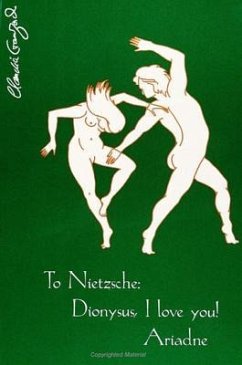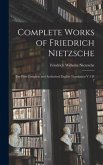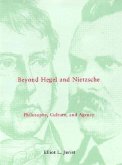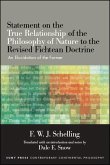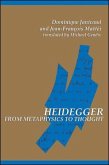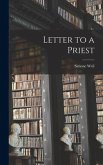This book explores the possibility that Friedrich Nietzsche simulated his madness as a form of "voluntary death," and thus that his madness functioned as the symbolic culmination of his philosophy. The book weaves together scholarly, mytho-poetic, literary critical, biographical, and dramatic genres not only to explore specifics of Nietzsche's "madness," but to question the "reason/madness" opposition in nineteenth and twentieth century thinking. A rational and scholarly study of this period of Nietzsche's "breakdown"--presented through his writings, letters, and poetry in combination with relevant historical documents and other critics' writings--is simultaneously disrupted and questioned by several non-traditional discourses or voices that break in on it. Thus, Ariadne's voice frames and unframes the research context and plays alongside it. Ariadne's voice is poetic, revelatory, rhapsodic, and prophetic, sounding much like Nietzsche's own voice during his "breakdown." Ariadne's discourse attempts to seduce through a non-rational, mytho-poetic love story which culminates in the wedding of Dionysus and Ariadne. Other non-rational discourses, critically developed and based upon the work of Nietzsche, Jean Baudrillard, and Gilles Deleuze, are given voice and work together with Ariadne to counter the usual interpretations of Nietzsche's "madness" and of what "mad" discourse is. These discourses are given the names "catastrophe," "phantasm," and "seduction." The experiment of the book is not only to offer an entirely different perspective on Nietzche's "madness" but to offer and perform new and challenging forms of affirmative discourse.
Hinweis: Dieser Artikel kann nur an eine deutsche Lieferadresse ausgeliefert werden.
Hinweis: Dieser Artikel kann nur an eine deutsche Lieferadresse ausgeliefert werden.

